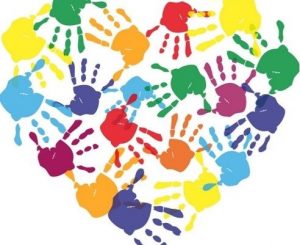Islam is considered to be the subject, foundation, and the first component of D’awah. Prophet Mohammad (SAW) has indeed presented the message of Islam to the world in the most amazing and beautiful way. He endured to share this message from the time he was commissioned as a Messenger of Allah until the time he passed away and went back to his Lord (Qur’an 33: 45-46). Thus, the first caller (Daa’iyah) to Islam was Mohammad (SAW). As a system of beliefs, Islam developed into a superstructure on three fundamental notions: Laa ilaaha illaa Allah (the declaration which states that there is no divinity worthy of worship except Allah); Mohammad (SAW) Rasuul Allah (the declaration which states that Mohammad is a Servant and Messenger of Allah); and Al-‘Amal As-Saalih (the virtuous/good deed). Some of the features of Islam are: It is from Allah, its tolerant, entireness, and idealism. Its structures are uniquely grounded on the following: morals, social, making fair decisions on matters, hisbah, law, financial jihad, sin, and punishment.
On the other hand, its purposes are mutual public interests, and embellishments.
The second component of Da’awah is the Daa’iyah as the preacher, the caller of jinn and human race to Allah. The Prophet called the Arabs, the non-Arabs, and the complete world of Islam and carried its message to them because his messenger hood was/is universal (Qur’an 7: 158 and 3:28). Apart from the Prophet (SAW), any other person who is wise and an adult is empowered able to call people to Allah (Qur’an 12: 108; 3: 104 and 110; 9: 71) (Ansari 2007). What is more, the Daa’iyah must maintain certain tools and manners before he results in carrying out his destiny.
According to some scholars like Zaidaan 2001, the third component of Da’awah is/are the Mad’uww [the invitee(s), the person(s) that is/are invited to Allah]. They are generally categorized into four main unions: the grandees/notables and their opposition (antagonism) to the word of Allah (Qur’an 34: 34-35; 7: 59-60 and 127; 38: 4-7; 27: 14; 11: 27; 23: 24); the people/the down-trodden—who admit the Da’awah quicker than others (Qur’an 7: 75); the impostors/the hypocrites—who display Imaan and conceal disbelief (Qur’an 3: 145; 2: 8-14 and 204-206; 4: 59-60; 9:56-57 and 67); and the radicals—who are followers but do not live up to the beliefs of Laa ilaaha illaa Allah (Qur’an 3: 30; 57: 16).
On the other hand, Siddiqi (N.d) has highlighted that Da’awah is of three types:
(1) Da’awah to oneself, by attempting to improve yourself and your entire life to be in accordance with the directives of Allah and His Prophet (SAW). The developing demands purification and change of thoughts according to Islamic principles, excluding all the inequalities in life, creating a strong and cohesive ‘aqeedah’, taking at least the practical knowledge of Islam, developing a trustworthy and honest character, manifesting and performing Islam in all every walk of life (behavior, personal dealings, and responsibilities) thereby presenting an encouraging role model of the Islamic idea of life in practice (Qur’an 2:208);
(2) Da’awah to your family, it is obligatory for you to change your family by saving yourself and the members of your family from hellfire. In order to meet that requisite of vital Imaan, you have to lead and raise the family of yours under the commands of Allah and His Prophet (SAW). Therefore, family is one of the key matters of Da’awah focus. The significance of it is based on the model family that accepts and supports Islamic values of living, receives and shares love desire among the others, appreciates the ancestors, turns around submission to the elders, commitment, and loyalty towards the relatives, care and concern about siblings, thereby making efforts to change itself into an inspirational model home for the future generations, local communities and friends. (Qur’an 66: 6);
(3) Da’awah to society: it is fairly the demand of our Imaan that we modify the society in which we live by accepting Islam to the origin of every member of the society. Allah has pleaded with the followers to initiate the tedious duty of calling the humanity to Allah in various verse of the Qur’an (Qur’an 22: 77-78; 2: 143; 16: 125; 12: 108; etc.). It is the requirement of our Imaan in Allah that we must improve ourselves and our family units as a role model of Islamic way of life through constant struggle in Dawa’h. But, we have no right to keep ourselves and our families as real Muslims, if the society around us is debased, full of dirt and sins, materialistic in nature and rebel in the attitude of life. Therefore, we must go out to meet people and persuade them about Islam as a better way of life, that way making a tremendous continuous effort to change the community.
The last and the fourth component of Da’awah is the Asaa Wasaail and Asaaleeb (the methods and techniques of calling to Allah). In this component, the sources of Da’awah will be highlighted followed by the methods of proselytisation and its ways which is further will be sub-divided into Da’awah through speech, through action, or through practical exemplary charge.
By: Dr. Asya AL Riyami



